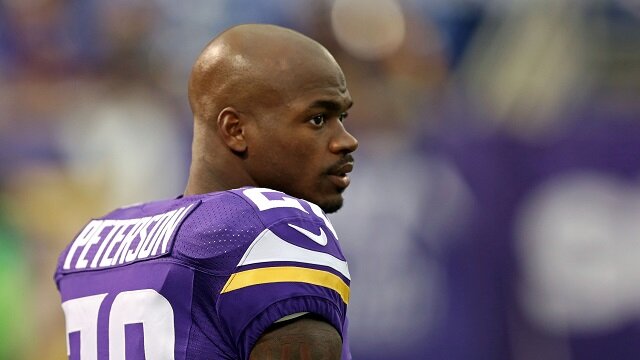May have already been posted but I dont see it on he front page. May be something good coming from this.
Electronic Arts' Madden NFL and NCAA Football franchises dominate the competition in their respective fields, mostly because the perennial best-sellers don't have any competitors to speak of. Soon, however, that may change, as a Northern California judge has ruled against EA's motion to dismiss a class-action that takes exception with the publisher's exclusivity licenses with the National Football League, the Arena Football League, and NCAA Football.
The suit, which was initially filed in June 2008 by a pair of gamers from Washington, DC, and California, alleges that EA has and continues to engage in "blatantly anticompetitive conduct" since 2004. At that time, EA and Take-Two Interactive released competing NFL Football products, resulting in a pricing war that saw Take-Two drop the price of its NFL 2K5 to $19.99 and EA cut Madden 2005's sticker tag to $29.95 in response.
However, the suit alleges that rather than continue the pricing war with Take-Two, EA secured the aforementioned exclusivity deals. With no Take-Two competitor the following year, the suit noted that Electronic Arts raised the price of Madden 2006 back to $49.95, an increase of nearly 70 percent. Madden NFL's current going rate retails for as much as $59.95.
As per the most recent ruling, which was first spotted by GamePolitics, a judge said that the plaintiffs' suit will be allowed to proceed, though he narrowed the applicable class to residents of the original filers' home regions of Washington, DC, and California.
"As the court understands these allegations, interactive football software will not sell if it does not use the names, logos and other markers of teams that actually compete in the NFL," the judge said in his ruling. "There is, in effect, no market for interactive football software in a virtual or fictitious setting. If true--as the court must at this point accept--this adequately alleges that there are no substitutes for interactive football software without the markers of actual teams and players."
Though the judge's decision is significant for the class, it is by no means an indication of the final outcome of the case. "The present complaint alleges that the names and logos of actual teams and players are essential to market interactive football software," the judge noted. "Whether plaintiffs will be able to back this allegation up with evidence is a matter left for another day."
That plaintiffs' motion for class certification is currently scheduled for September 24, with the full hearing expected to commence January 14, 2010.
The suit, which was initially filed in June 2008 by a pair of gamers from Washington, DC, and California, alleges that EA has and continues to engage in "blatantly anticompetitive conduct" since 2004. At that time, EA and Take-Two Interactive released competing NFL Football products, resulting in a pricing war that saw Take-Two drop the price of its NFL 2K5 to $19.99 and EA cut Madden 2005's sticker tag to $29.95 in response.
However, the suit alleges that rather than continue the pricing war with Take-Two, EA secured the aforementioned exclusivity deals. With no Take-Two competitor the following year, the suit noted that Electronic Arts raised the price of Madden 2006 back to $49.95, an increase of nearly 70 percent. Madden NFL's current going rate retails for as much as $59.95.
As per the most recent ruling, which was first spotted by GamePolitics, a judge said that the plaintiffs' suit will be allowed to proceed, though he narrowed the applicable class to residents of the original filers' home regions of Washington, DC, and California.
"As the court understands these allegations, interactive football software will not sell if it does not use the names, logos and other markers of teams that actually compete in the NFL," the judge said in his ruling. "There is, in effect, no market for interactive football software in a virtual or fictitious setting. If true--as the court must at this point accept--this adequately alleges that there are no substitutes for interactive football software without the markers of actual teams and players."
Though the judge's decision is significant for the class, it is by no means an indication of the final outcome of the case. "The present complaint alleges that the names and logos of actual teams and players are essential to market interactive football software," the judge noted. "Whether plaintiffs will be able to back this allegation up with evidence is a matter left for another day."
That plaintiffs' motion for class certification is currently scheduled for September 24, with the full hearing expected to commence January 14, 2010.





 I owned 2k and loved it and was pissed as well. But I moved on.
I owned 2k and loved it and was pissed as well. But I moved on.

Comment